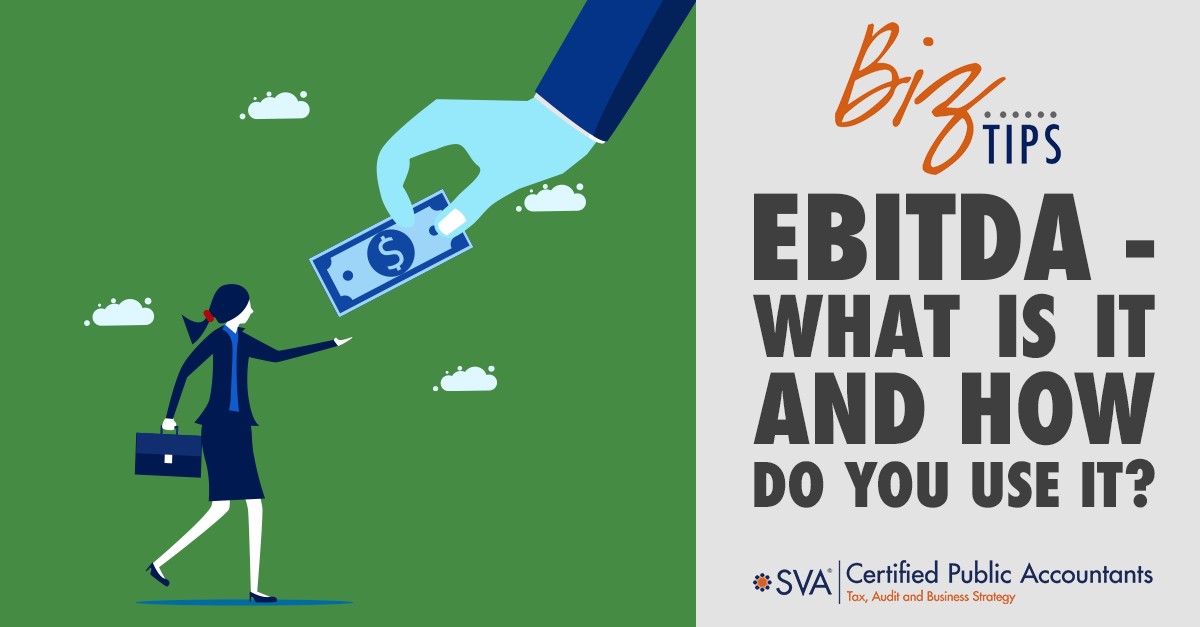| Highlights: |
- Defines EBITDA (Earnings Before Interest, Taxes, Depreciation, and Amortization) and explains how it’s calculated to show operational profitability before non-operating expenses.
- Describes practical uses of EBITDA such as benchmarking cash generation, comparing companies (including for mergers and acquisitions), and informing exit strategies.
- Offers actionable advice on improving EBITDA through cost control, inventory and billing management, and better financial reporting systems.
|
EBITDA is something your accountant likely talks about. Are you wondering what it is and why it is essential?
(Download Video Transcript)
Defining EBITDA
E - Earnings
B - Before
I - Interest
T - Taxes (Federal, state, and local taxes)
D - Depreciation
A - Amortization
EBITDA is calculated by taking Operating Income (EBIT) + Depreciation + Amortization.
EBITDA Margin is calculated by taking EBITDA and dividing it by Net Sales.
EBITDA reflects the short-term operational efficiency of your business and shows investors how much of your company's earnings are attributed to operations. The formula removes non-operating management decisions, providing a clear picture of your operating profitability.
- A decreasing EBITDA could indicate cash flow problems or low profitability.
- Higher EBITDA means stable business earnings. It is an essential indicator of the value of a company.
Calculating EBITDA requires 3-5 years of sound financial data, necessitating good financial reporting systems and processes. Your accountant should include the EBITDA calculation in your income statement.
How to Use EBITDA
EBITDA Margin indicates how much cash is generated for every dollar of revenue earned and is a benchmark used to compare companies. It is used for merger and acquisition planning to compare performance with similar companies. When looking back on five years of data, potential buyers will be able to see the increased performance, thus making your business more valuable.
Understanding your EBITDA will help you know where you are today and what changes you could make to impact a future sale as you begin your exit strategy.
How to Improve EBITDA
Reduce Costs and Maintain Prices
Reduced pricing also reduces your EBITDA. Educate your customers on the value of your products/services and charge appropriately for what you are offering. Cost reduction is always necessary, so focus some time on delving into your costs by service, product, division, etc. Even slight cost reductions can be significant when calculated over a year.
Manage Inventory to Reduce Working Capital
Inventory incurs a cost when being produced and stored for long periods. Properly managing your inventory will help you collect revenue faster and reduce on-hand inventory costs. Review your inventory management to ensure a proper balance between inventory manufacturing/purchases and the sales cycle. This also applies to investments in employee skills.
As you train employees on new skills, have a plan to use those skills quickly, bringing full circle the cost of the skill enhancement to improved production or service sales.
Shorten Billing Times
The time between a signed contract and the first invoice can affect your EBITDA. Review your process, communications, and planning so that you can start billing soon after a contract is confirmed.
Implement Appropriate Financial Reporting Software
Software functionality improves every year. Is it time for you to invest in updated systems? The results of your EBITDA calculation won't be valid if you aren't accurately reporting your financials.
Have an outside advisor review your financial reports to determine if you have what you need, when you need it. Enlist an advisor who understands your industry to review your processes, procedures, and reports. It will be money well spent to establish where you are now and what opportunities you have in the future.
This is just a quick overview of EBITDA. Give us a call and let’s discuss your specific business needs.
© 2022 SVA Certified Public Accountants

